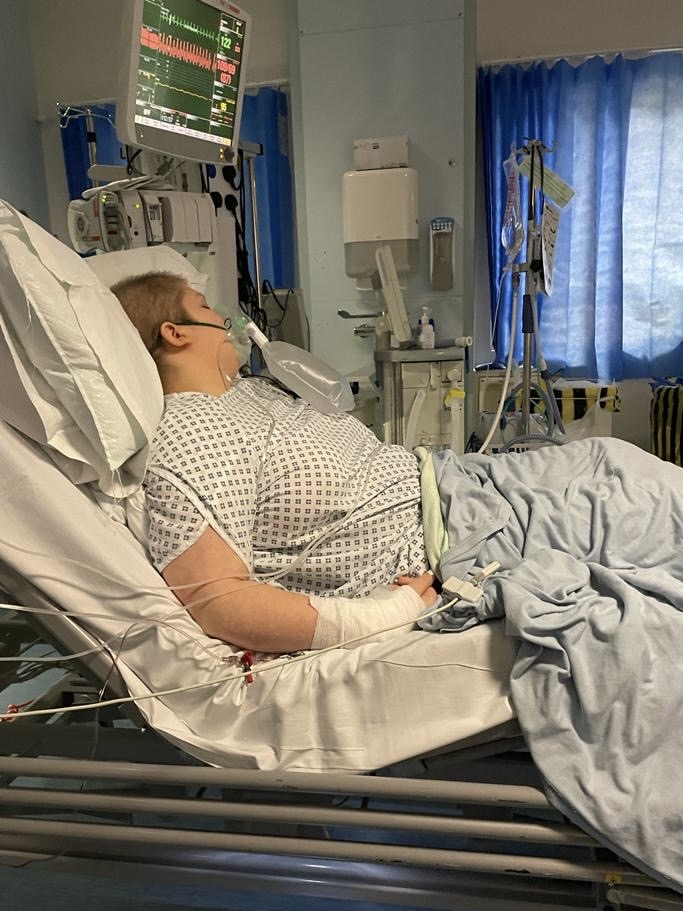Life after cancer treatment
Rachel
Harvey
Reaching the end of cancer treatment is a major milestone – but resuming your life after cancer can bring its own challenges. Here, Rachel and Harvey reflect on their experiences.
Rachel
The term ‘remission’ was difficult for me. I felt I was expected to bounce back to normal, resuming life as it was before I was diagnosed. In reality, there was no external pressure to be the same person, but I felt this unspoken expectation to be who I was pre-diagnosis.
It’s like being left in the wake of a storm. You become so hyper-aware of your health that you begin to question your intuition. I struggled with the thought that I could be catapulted back into the storm at any second - even the most minuscule drop of rain brings with it the possibility that it might come back.
Every minor feeling I had, even a standard cold or headache, occupied my mind. Every test or scan was coupled with anxiety, which I experienced like a crushing chest pain that refused to shift until the doctors assured me everything was okay. But even then, I felt as though they could have missed something.
Post-treatment life is like being reborn but with all these new anxieties. Over a year down the line, this feeling of anxiety has never fully left, but with each clear scan the crushing sensation settles slightly. A stark reality for me is that this anxiety will never disappear, but I can live with it, knowing it becomes less all-consuming.
It’s difficult to accept, feeling out of touch with your body. This is not the way I envisioned living (especially at 19 years old) and if I had the choice, I would not feel this way, but it’s a small price to pay for my health.
Unless you have had cancer, it is so difficult to fully understand the chronic tiredness, anxiety, and absurdity of post-diagnosis life. I was so determined to prove resilience to myself and everyone around me, but sometimes the strongest thing you can do is be kind to yourself. Allow yourself time, sensitivity, and kindness because remission is an uphill battle.
When I got the all-clear it was very anti-climactic. I was in the worst shape of my life, seriously vulnerable in a global pandemic and scared.
Harvey
Post-treatment has been the hardest part for me. As I was a professional rugby player at the start of my diagnosis, I was able to maintain a strong training attitude to treatment. I saw the yearly schedule as a playing season and did everything in my power to make sure I was in the best shape to finish the season in the best condition possible. My diet was healthy, I exercised where possible and I stayed positive.
However, when I got the all-clear it was very anti-climactic. I thought it would be the best day of my life, just like winning the championships. But the reality was I was in the worst shape of my life, seriously vulnerable in a global pandemic and scared. I have been eternally grateful for this second chance at life ever since I got the all-clear and I always will be, but it has been really tough to bounce back as quickly as I would have liked.
The first few months were the toughest. I was no longer around the nurses and doctors who over the last 12 months had become my family and my safety. I started jogging, as I have always loved running and wanted to get my fitness back ASAP. I was seriously out of shape and I started having panic attacks after running. Panic is just uncontrolled fear in my opinion, it has no good use, yet it can ruin so much. I still get panicked today, which is something that takes some adjusting to. I have worked on breathing techniques and I have trained hard to build both my mental and physical strength since.
It was quite a lonely time for me and it was very challenging but I set myself small achievable goals and built myself up. Most of the panic I had was around the heart attack I had during treatment, I would worry myself it was happening again and this was most often when I was working out or doing anything that increased my heart rate. I was also worried about the cancer coming back, and I feared I might not be able to go back to work or be fit enough to play sport.
As I got fitter and more time passed, my anxieties and fear decreased. I completed an ultra marathon, raising money for Teenage Cancer Trust, and I now manage a cocktail bar/restaurant in London. I’ve also started a non-profit company to try to give back to the community. I’m two and a half years post-treatment now and I’m still having to build my confidence, but I believe I’m getting there.




